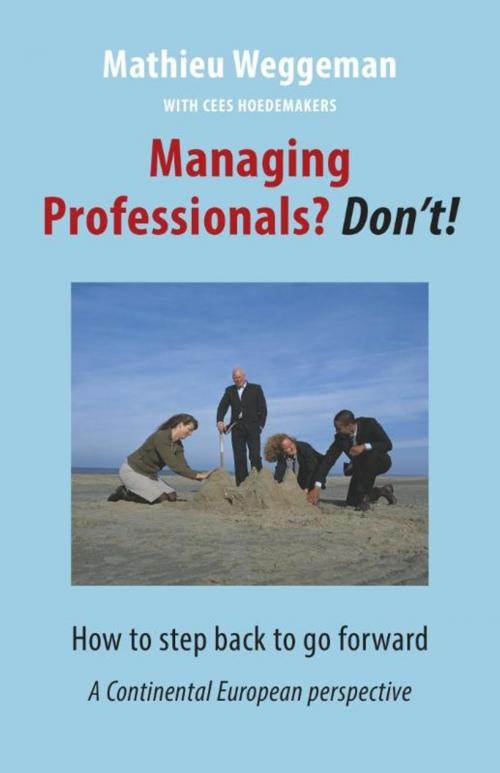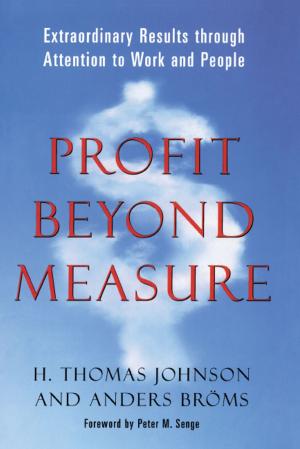Managing professionals? Don't!
how to step back to go forward; a continental European perspective
Business & Finance, Management & Leadership, Management| Author: | Mathieu Weggeman, Cees Hoedemakers | ISBN: | 9789492004079 |
| Publisher: | Wardy Poelstra Projectmanagement | Publication: | June 16, 2014 |
| Imprint: | Warden Press | Language: | English |
| Author: | Mathieu Weggeman, Cees Hoedemakers |
| ISBN: | 9789492004079 |
| Publisher: | Wardy Poelstra Projectmanagement |
| Publication: | June 16, 2014 |
| Imprint: | Warden Press |
| Language: | English |
The powerhouses of our companies today are made up of increasing numbers of professionals. The number of companies that would describe themselves as knowledge-intensive is also increasing think of R&D labs, hi-tech, IT, media, business support, health and educational organizations. Managers tend to think that these new organizations and their staff must be managed like before. But to do so can create more problems than it might solve. Professionals are for the most part already motivated and do not need to be managed. They have studied many years to be able to do their job. Frustrating their enthusiasm by steering and controlling them can restrict their ability to perform to the best of their capability. In any such organization, the avoidance of forms, meaningless report writing, and restrictive rules and procedures, will lead to much greater productivity and improved quality. Professionals should be trusted in advance and given room to exercise their discipline at a state of the art level. Mathieu Weggeman has written many books and articles on managing professionals, on how to conserve creativity, on innovation and on knowledge management. This book is an accolade. It is about the new servant leadership: the kind of leadership required for these companies. It explains the characteristics and peculiarities of professionals in the workplace. It emphasizes that their most important production factor is their knowledge, and their most difficult task is innovation. The role of the manager is to create the environment in which both these traits can flourish, and thus to help professional organizations achieve their collective ambitions. Mathieu Weggeman is a professor of organization science at the Eindhoven University of Technology, the Netherlands. He is also a boardroom consultant for knowledge-intensive organizations. Cees Hoedemakers is a consultant in the energy industry.
The powerhouses of our companies today are made up of increasing numbers of professionals. The number of companies that would describe themselves as knowledge-intensive is also increasing think of R&D labs, hi-tech, IT, media, business support, health and educational organizations. Managers tend to think that these new organizations and their staff must be managed like before. But to do so can create more problems than it might solve. Professionals are for the most part already motivated and do not need to be managed. They have studied many years to be able to do their job. Frustrating their enthusiasm by steering and controlling them can restrict their ability to perform to the best of their capability. In any such organization, the avoidance of forms, meaningless report writing, and restrictive rules and procedures, will lead to much greater productivity and improved quality. Professionals should be trusted in advance and given room to exercise their discipline at a state of the art level. Mathieu Weggeman has written many books and articles on managing professionals, on how to conserve creativity, on innovation and on knowledge management. This book is an accolade. It is about the new servant leadership: the kind of leadership required for these companies. It explains the characteristics and peculiarities of professionals in the workplace. It emphasizes that their most important production factor is their knowledge, and their most difficult task is innovation. The role of the manager is to create the environment in which both these traits can flourish, and thus to help professional organizations achieve their collective ambitions. Mathieu Weggeman is a professor of organization science at the Eindhoven University of Technology, the Netherlands. He is also a boardroom consultant for knowledge-intensive organizations. Cees Hoedemakers is a consultant in the energy industry.















